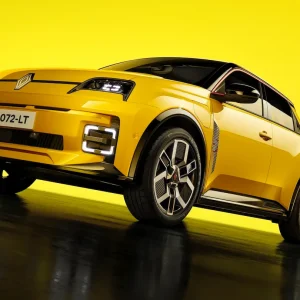Hyundai has announced its plans for a product offensive, that will see the manufacturer release around eight new products next year, and at least 14 new alternatively fuelled products between 2017 and 2020.
Hyundai UK president and CEO Tony Whitehorn made the announcement to BusinessCar at Hyundai’s offices in High Wycombe. He says, “This is our product strategy from now until 2020, which gives you an idea of not just the number of vehicles we will be launching, but also the different types of engines we will also have on offer for our customers.”
Next year, the manufacturer will launch the i30 N Fastback and will also look to extend its hybrid powertrain offering to a number of different models. “We will also be bringing out a production hydrogen vehicle. We are at the forefront at that sort of technology and these innovations will help us get to where we need to be,” Whitehorn says.
Historically, Hyundai has gained momentum by regularly bringing out new products, but this new strategy sees even more models being launched in a relatively short period. “We have the new i10 and i30 in hatchback and Tourer versions this year, and we have just brought out the new Ioniq PHEV. The rest of the year will see the launch of the i30 N, and of much importance is our entrance into the SUV sector with Kona.”
For business car users, this range of products and powertrains is essential, says Whitehorn. “Business users want to choose the most efficient powertrain, usually, so we are offering our Kona in a 1.0-litre petrol engine and we will have a diesel option for fleet. The Kona will come out as an EV as well, which will have a range of about 300 miles.”
The product offensive is an important part of the manufacturer increasing its presence in fleet. Whitehorn explains that fleet is currently the brand’s biggest opportunity.
He says, “We do very well in the rental and motability side of things, but fleet is where we are placing our focus now and where we see our
biggest opportunity.”
To do this, Hyundai’s strategy is to increase its appeal to companies that are willing to make a less ‘conservative’ model choice. “Of course, historic fleet brands such as Ford, Vauxhall and Peugeot have a strong fleet base and that will remain, but we will focus on appealing to those companies that are willing to take a risk and try
something different.”
To appeal to fleets, therefore, Whitehorn notes that product launches are key, especially those that are appealing to user-choosers due to looks, affordability and good residual values.
An example, explains Whitehorn, is the Ioniq which is one of just a few hybrids on the roads right now. Currently, the Ioniq has three methods of propulsion, and Whitehorn explains that Hyundai is the only manufacturer that offers that range of powertrains on one model.
“Once fleets start to experience our brand, they then wonder what else we do. The Ioniq is like a Trojan horse that is coming into its own in terms of appealing to business car users,” he says.
The i30 N is what Hyundai describes as its “everyday sports car”, and Whitehorn explains that while it may not be a fleet bestseller, it will have a halo effect on the brand. “The appeal of the N will make our vehicle range even more desirable to retail and fleet customers,” he says.
Hyundai’s planned growth in fleet comes at the same time as other extensive growth plans by the manufacturer, including its aim to be the biggest Asian manufacturer in Europe by 2020.
It also has big ambitions for its position in the UK market going forward. Whitehorn explains, “By 2023, our ambition is to be in the top five in the UK market and that is possible by reaching 5?6% marketshare, our next big milestone. We hope to sell 100,000 vehicles in total, but, of course, that’s market dependent.”





